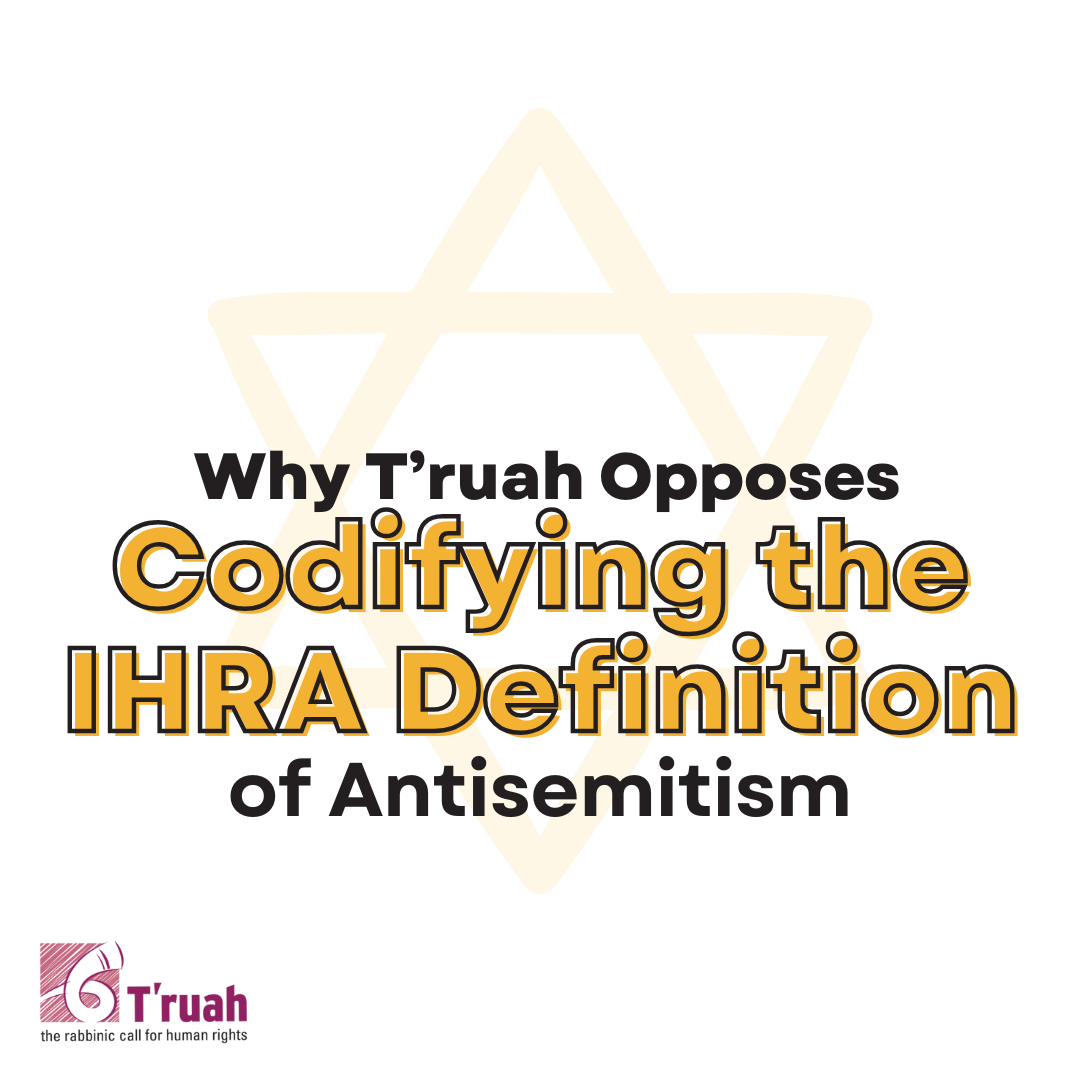T’ruah is committed to fighting antisemitism and to ensuring the safety, wellbeing, and vibrancy of the Jewish people. It is because of this commitment that we oppose any effort to codify definitions of antisemitism into policy or law, including the International Holocaust Remembrance Alliance (IHRA)’s definition of antisemitism.
- First, codifying any definition of antisemitism hampers the ability to recognize and respond to antisemitism in context. There are no codified definitions of racism, sexism, homophobia, Islamophobia, or other bigotries. That is in part because a legal response to a hate crime must take into account the specific facts of the particular case.
- Second, we are concerned that IHRA — from nonbinding resolutions endorsing IHRA to full codification — has been repeatedly promoted by bad faith actors to suppress free speech rather than targeting actual acts of antisemitism. The Jewish community is deeply divided over the formalization of this definition, which both infringes on core First Amendment rights, and also distracts from the work of fighting antisemitism.
- In 2005, the European Union’s antiracism agency created a “working definition” of antisemitism in order to monitor and combat antisemitic discrimination and violence. The International Holocaust Remembrance Alliance (IHRA) then adopted this definition in 2016 and it became known as the IHRA definition. Kenneth Stern, the renowned antisemitism expert who drafted the original definition, has testified before Congress that this definition was meant to be used as a resource for training and monitoring, not legislated as sweeping, all-purpose hate speech code. In fact, he stated using it as such “is an attack on academic freedom and free speech.”
- The text of the IHRA definition includes a series of contemporary examples of antisemitism that wrongly equate what may be legitimate expressions of free speech – namely one’s freedom to publicly criticize the actions of the Israeli government – with antisemitism. The adoption of this definition has led to efforts on university campuses to push out pro-Palestinian activist groups and limit what is taught, as well as suppress political speech by characterizing it as hate speech.
While it is true that rhetoric criticizing Israel can veer into antisemitism — especially when it holds Jews collectively responsible for Israel’s conduct, denies Jewish history in the Land of Israel, or calls for the expulsion of Jews from Israel — criticism of Israel is not inherently antisemitic. As Jews, we affirm Israel can and must be held to the same human rights standards as every other country. While some pro-Palestinian activism may feel uncomfortable to Jews, it does not cross the line into antisemitism as long as it remains within the realm of criticism of Israel on the basis of its human rights record and policies.
We appreciate that lawmakers are taking on the work of fighting antisemitism. But codifying IHRA is not the right strategy to fight antisemitism and would instead negatively impact protected free speech and further conflate antisemitism and legitimate criticism of Israel. Therefore, we oppose efforts on the state, local or federal level to codify IHRA’s definition of antisemitism into policy and law.

